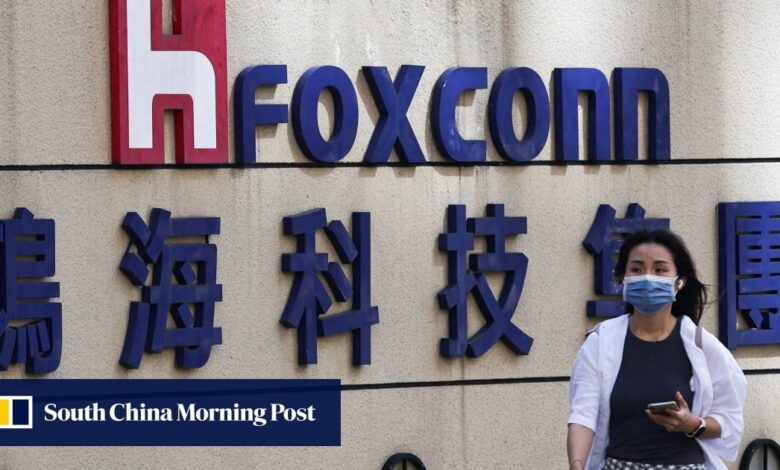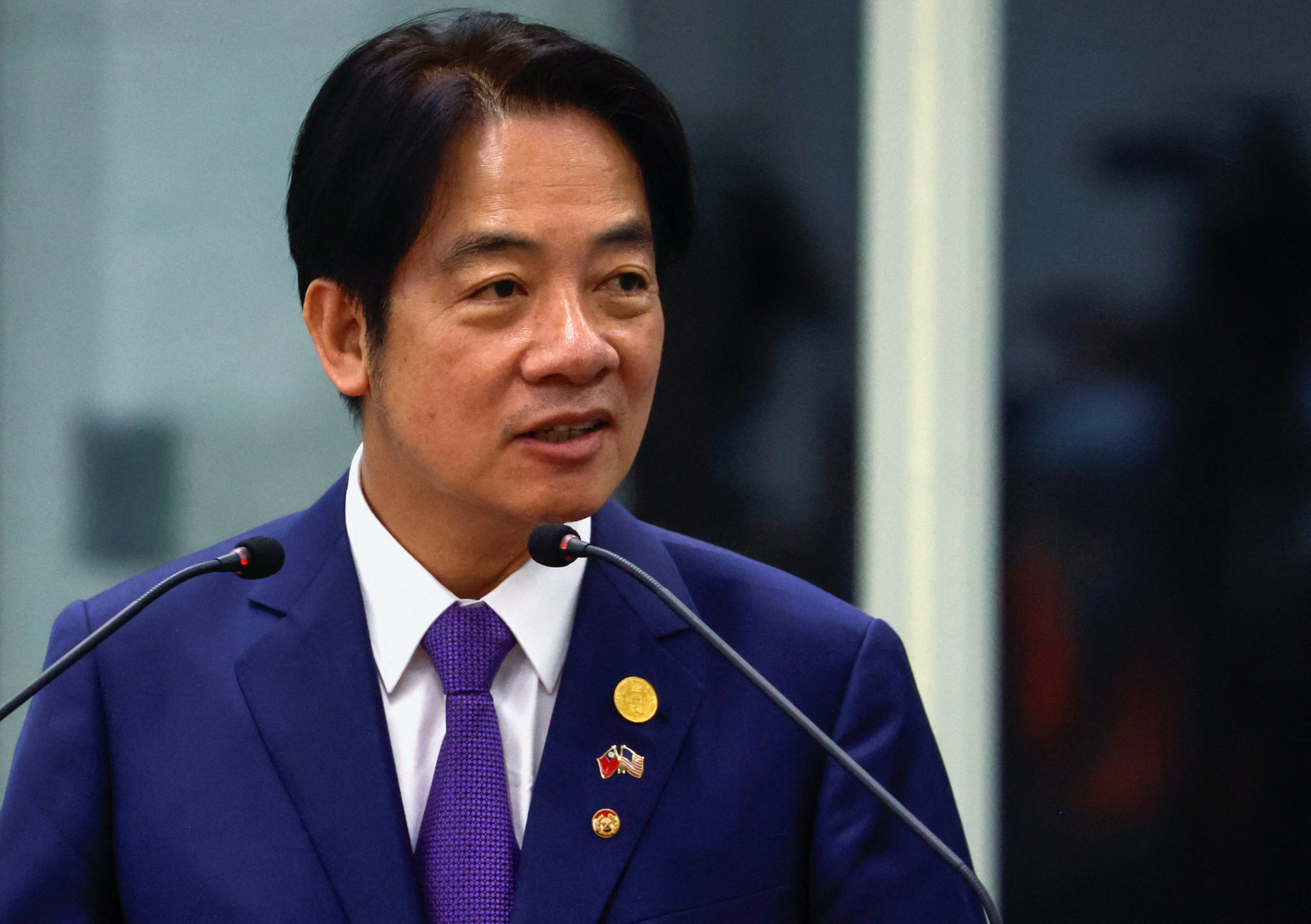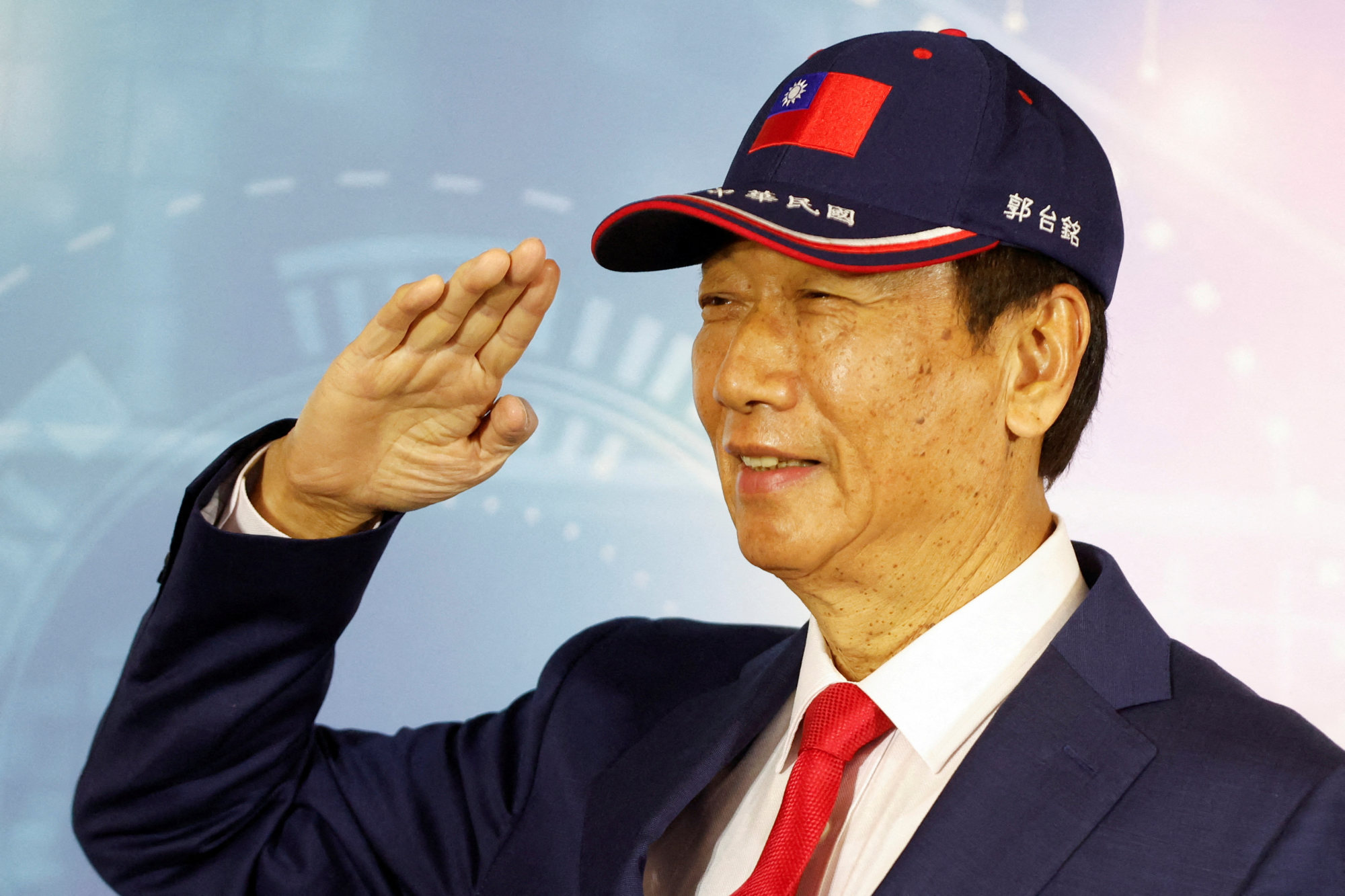Taiwan elections: how Foxconn investigation could backfire on Beijing

In a statement on Sunday, Foxconn said its “fundamental principle is to comply with the law everywhere it operates in the world” and it would “actively cooperate with relevant units on the related work and operations”.
In fact, Zhu seemed to suggest in the briefing that there was a political factor to the probe, saying that Beijing expected Taiwanese companies to play a “positive role” while operating on the mainland.
“While sharing development benefits and growth dividends on the mainland and achieving rapid development, Taiwan enterprises should also assume corresponding social responsibilities and play a positive role in promoting the peaceful development of cross-strait relations,” she said.
“Inevitably, people will link the probe to Gou’s presidential bid as Beijing could have launched the inspection after the polls or done it long before Gou stated his intent to run in the race,” said Ho Chih-yung, an assistant professor of general education at National Tsing Hua University in Hsinchu, south of Taipei.

Gou has not commented on the investigation, with his campaign team saying the billionaire is no longer involved in the company’s day-to-day business, though he remains a major shareholder.
Zivon Wang, an analyst at the Chinese Council of Advanced Policy Studies (CCAPS), a Taipei think tank, said the investigation was meant as a warning for Gou.
“It is also meant for all other mainland-based businesspeople, telling them not to stump for the pro-independence green camp while making money in China,” Wang said.
But it might have the opposite effect, with analysts suggesting voters could see the investigation as an attempt to interfere in the island’s elections, prompting them to turn to the DPP to show their displeasure with Beijing.
“Reports of the probe triggered a slump in Foxconn’s shares in the local stock market on Monday, and investors who suffered from huge losses would blame it on Beijing,” Wang Kung-yi, head of the Taiwan International Strategic Study Society, a Taipei think tank, said of the 3 per cent fall in Hon Hai shares.

Neutral voters or those who had yet to make up their minds on how they would vote might turn to the green camp, Wang said.
“Definitely, the DPP would seize the opportunity to stir up anti-mainland sentiment, hoping voters unhappy with the mainland’s move would vote for its candidates,” he said.
Taiwanese Premier Chen Chien-jen said on Monday the DPP government would serve as a “shield” for the island’s businesses. His deputy, Cheng Wen-tsan, called the Foxconn investigation “interference in Taiwan elections” and an attempt to “distort Taiwan’s democracy”.
The following day, Lai hit out at Beijing over the investigation of the tech giant, saying Beijing should “cherish” Taiwanese companies given their contributions to the mainland’s economy and refrain from putting pressure on them during an election.
The DPP legislature caucus echoed Lai’s reproach, saying the mainland’s move would only fuel anti-Beijing sentiment on the island.
But CCAPS’ Wang said the DPP’s Beijing-bashing tactic might not be able to achieve the same result as it did in 2020 when Taiwanese President Tsai Ing-wen won her second term with the help of anti-Beijing sentiment.
“The probe is apparently targeting Gou, who has been known for his mainland-friendly stance. Since it is not against any Taiwan-centric business leaders, voters who identify themselves with Taiwan might not necessarily find the move unacceptable,” he said.
China says investigation into Apple supplier Foxconn is ‘normal law enforcement’
China says investigation into Apple supplier Foxconn is ‘normal law enforcement’
Ho also said the atmosphere now was quite different from that aurrounding Tsai’s re-election campaign.
The anti-government protests that rocked Hong Kong four years ago gave Tsai’s re-election campaign a strong boost as she told voters if they did not vote for her and the DPP, the island could end up as the next Hong Kong, heavily controlled by Beijing.
“While the probe might upset Taiwanese people, if we have a closer look at the four candidates’ mainland policies, we can find that they are more or less the same – all supporting maintaining the cross-strait status quo which is a position in line with America’s expectation,” Ho said. He added that as this was what the US hoped to see, the green camp might not want to overly ratchet up the anti-Beijing mood on the island for election gains.





